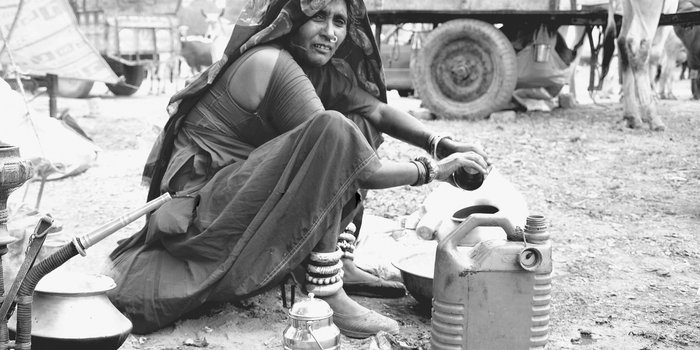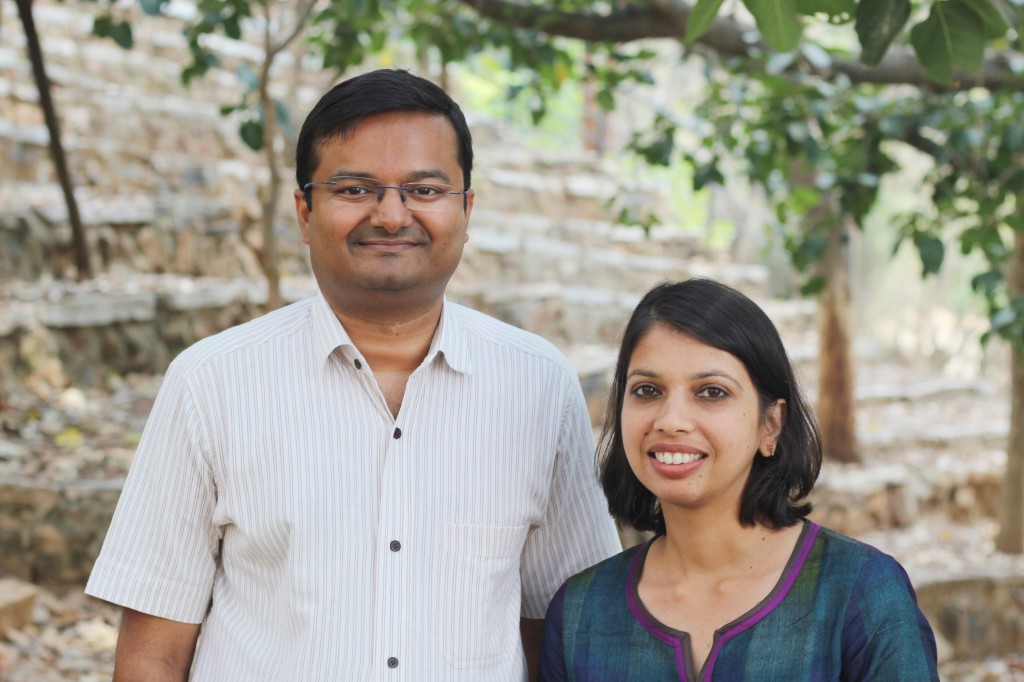Ramakrishna NK was working as a principal consultant for Vignette Europe Limited while his wife Smita Ram was involved in social initiatives with non-profits in India and the United Kingdom when the duo felt a strong desire to return to the country and join the fight against poverty.
The Inspiration
“We were inspired by Professor Muhammad Yunus, who won the Nobel Peace Prize for setting up Grameen Bank, which pulled scores of Bangladeshis out of poverty for decades and proved that the poor can be worthy borrowers. We felt that the Internet could help us connect with people who wanted to make a difference in the lives of rural entrepreneurs and so we started www.rangde.org on the Republic Day in 2008 and since then over 12,000 Indians have joined the initiative to lend a helping hand to rural women across the country,” said Ramakrishna. He chalked out the strategy for his organisation and also worked on partnerships to scale up activities on a long-term basis. Smita forms the core of the organization and always stays in touch with communities that Rang De attempts to reach out to, thereby forming a strong community of social investors.
Focussing On Poverty Alleviation Instead Of Financial Growth
The Oxford-returned couple has been working hard and their efforts have created a difference in the micro-crediting and social entrepreneurship space. The firm Rang De, funded by the World Bank through development marketplace, is a Bangalore-based non-profit organization that allows individuals to lend money to low income households in India that require a small amount of money or micro-loans to start or grow their businesses. Some of the loans are also disbursed as large-tranche loans to organizations that support cooperatives of weavers, farmers, dairy producers, food producers. This month Rang De is raising funds for ‘Just Change India’, a collective of Adivasi farmers in the Cuddalore region of Tamil Nadu.
“We operate through our valued partners who have a history of good work in their communities in the remote, rural parts of India. In Orissa, we disburse funds through Darbar Sahitya Sansad, an organisation formed in 1993 that offers flood relief and imparts skilled training to migrant workers in the Khurda region. Unlike most of the other microcredit providers, we operate in rural areas not only with the help of microfinance institutions but also with social development institutions as they are focused on poverty alleviation instead of financial growth,” explains Ramakrishna.
Empowering Rural Women
Over the past nine years, more than 55,000 women have been able to get affordable microcredit through the Rang De platform. That comes out to be 16 individuals (mostly women as 93% of the borrowers are women) every day. Rang De supports underprivileged people, artisans and low-skilled people across the country by giving them an opportunity to be self-reliant and help them with the funding to start unique ventures. The organization’s microcredit is a low-cost, easy -to-access and borrower-friendly credit meant for low income households. Rang De is designed to match the business needs of the deprived groups and consists of individuals (social investors) with the ability to lend small sums and make a social impact. The organization ensures that any loan to generate income has an interest rate not higher than 8.50% per annum. Another interesting funding model is the Rang De Education loan that has been designed to address educational needs of low income groups.
Encouraging Entrepreneurship Among Women
Over 55,000 individuals have been benefitted by Rang De as of April 4, 2017, by 12,352 social investors. A total of 563.2 million rupees have been raised to help borrowers, 93.26% of which are women. The organisation puts special emphasis on women empowerment. Smita says, “Women are benefited from their financial independence, probably for the first time in their lives. This is vital as costs have increased exponentially over the years and we cannot have single-income households given the low wages of most professions in the village.
These women get great respect in their communities and are treated with respect as they know to run businesses. Most importantly, they learn how to access credit and do not fall in the traps of predatory moneylenders. Eventually they are welcomed by the banks and other formal institutions.”
Rang De mostly operates in villages where the concept of a girl child working is revolutionary. “Women in the villages do not get loans from banks. Seeing so many business ventures getting started has been a wondrous journey and we truly believe that these women make a great impact on the fabric of the community. There are all kinds of entrepreneurs — a woman buying a cow in Maharashtra after living behind closed doors is as important as a start-up getting VC funding. It breaks the trend formed over generations by empowering women in the country,” added Ramakrishna, who works with more than 50 passionate individuals constantly advancing the cause of affordable credit and women empowerment. However, Ramakrishna strongly feels the need for more supporters for their mission as the demand for credit far outstrips the supply.
Article Source: Entrepreneur India


